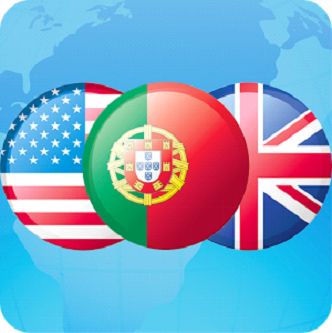The Value of Professional English To Portuguese Translation Solutions
The Value of Professional English To Portuguese Translation Solutions
Blog Article
Top Tips for Perfect English to Portuguese Translation Provider
Attaining exceptional English to Portuguese translation requires even more than mere word-for-word conversion; it demands an understanding of social nuances and etymological intricacies. Choosing qualified translators that are both proficient and culturally conscious is extremely important - English To Portuguese Translation. What various other important aspects should be thought about to elevate translation quality better?
Understand Cultural Nuances
When equating from English to Portuguese, understanding the social subtleties is vital for producing a resonant and exact message. The Portuguese-speaking globe is varied, including numerous regions, each with its distinctive customs, expressions, and social norms. A translator has to be in harmony with these nuances to ensure that the translation not only communicates the desired message but also reverberates with the target audience.
For example, colloquial expressions in English might not have straight counterparts in Portuguese. An expression that functions well in one culture might lead to complication or misinterpretation in an additional. Recognizing regional languages and variants, such as those discovered in Brazil and Portugal, is essential; words might hold various connotations or uses depending upon the location.
In addition, social context plays a significant role in translation. Eventually, a detailed understanding of cultural nuances is crucial for providing translations that are not just linguistically exact but also culturally appropriate and engaging.
Select Certified Translators
Selecting certified translators is a vital action in making certain the accuracy and quality of English to Portuguese translations. A translator's experience not just encompasses language efficiency however likewise a deep understanding of cultural context, colloquial expressions, and industry-specific terms. When picking a translator, focus on those with formal training in translation studies or linguistics, along with relevant accreditations that show their professional proficiency.
Experience plays an essential role as well; translators specializing in certain areas-- such as lawful, clinical, or technical-- are extra likely to provide accurate translations tailored to the market's criteria (English To Portuguese Translation). Additionally, consider their portfolio and client testimonies to evaluate their previous work quality and integrity
Engage translators that are native Portuguese speakers, as they have an inherent understanding of the language's nuances and regional languages. This knowledge improves the translation's authenticity and performance.
Use Contextual References
When converting, it is vital to recognize colloquial expressions and social references that might not have direct equivalents in Portuguese. As an example, specific expressions that resonate in English may call for adaptation to share the exact same psychological weight or social relevance in Portuguese. Using contextual references can assist translators choose the appropriate terms and style, consequently enhancing the general quality and effect of the translation.

Emphasis on Localization
Localization plays an important function in the translation process from English to Portuguese, as it makes sure that the equated material is appropriate and culturally proper to the target audience. English To Portuguese Translation. This procedure surpasses plain translation; it includes adapting the content to the cultural, social, and etymological subtleties certain to Portuguese-speaking regions
Comprehending local expressions, personalizeds, and choices Read More Here is important. For example, certain expressions or recommendations that resonate with an English-speaking target market might not have the exact same effect on Portuguese speakers. It is vital to take into consideration local variations, such as Brazilian Portuguese versus European Portuguese, as each has distinct vocabulary and stylistic distinctions.
Additionally, localization incorporates formatting, such as day and time formats, currency, and dimension units, which can vary considerably throughout cultures. This interest to information fosters a link with the audience, improving involvement and understanding.
Additionally, employing regional dialects and jargon can give authenticity, making the material more relatable. By concentrating on localization in English to Portuguese translation, businesses can efficiently interact their message, build depend on with their audience, and eventually attain their designated purposes.
Review and Edit Completely
Thorough evaluation and editing and enhancing are vital action in the translation process, especially when transforming English content right into Portuguese. This phase guarantees that the equated material not only maintains the initial significance yet likewise reverberates well with the target market. Provided the etymological and cultural subtleties, a thorough strategy to review and modifying is crucial.
Begin by contrasting the initial English message with the Portuguese translation, paying very close attention to terminology, context, and tone. It's critical to make sure that cultural referrals and colloquial expressions are suitably adapted for the Portuguese audience. Involving a second translator or a native speaker for this evaluation procedure can supply indispensable understandings and capture errors that might have been overlooked.
In addition, look for grammatical precision and stylistic uniformity throughout the file. Typical difficulties such as incorrect cognates or unclear expressions ought to be resolved to prevent false impression.
Final Thought
Attaining remarkable English to Portuguese translation solutions demands an extensive method that encompasses understanding cultural subtleties, selecting qualified translators, utilizing contextual referrals, prioritizing localization, and performing extensive evaluations and edits. Each component plays an essential role in making certain that translations are not only exact yet likewise resonate with the target audience. By implementing these strategies, companies can boost the performance of their communication and foster a deeper connection with Portuguese-speaking target markets.
Achieving extraordinary English to Portuguese translation calls here are the findings for more than mere word-for-word conversion; it demands an understanding of linguistic ins and outs and cultural subtleties.Picking certified translators is a critical step in check it out ensuring the precision and top quality of English to Portuguese translations.Thorough testimonial and modifying are important actions in the translation procedure, especially when converting English material right into Portuguese.Begin by comparing the initial English message with the Portuguese translation, paying close attention to terms, tone, and context.Attaining extraordinary English to Portuguese translation solutions demands an extensive method that encompasses understanding cultural nuances, choosing qualified translators, using contextual recommendations, focusing on localization, and conducting complete evaluations and edits.
Report this page